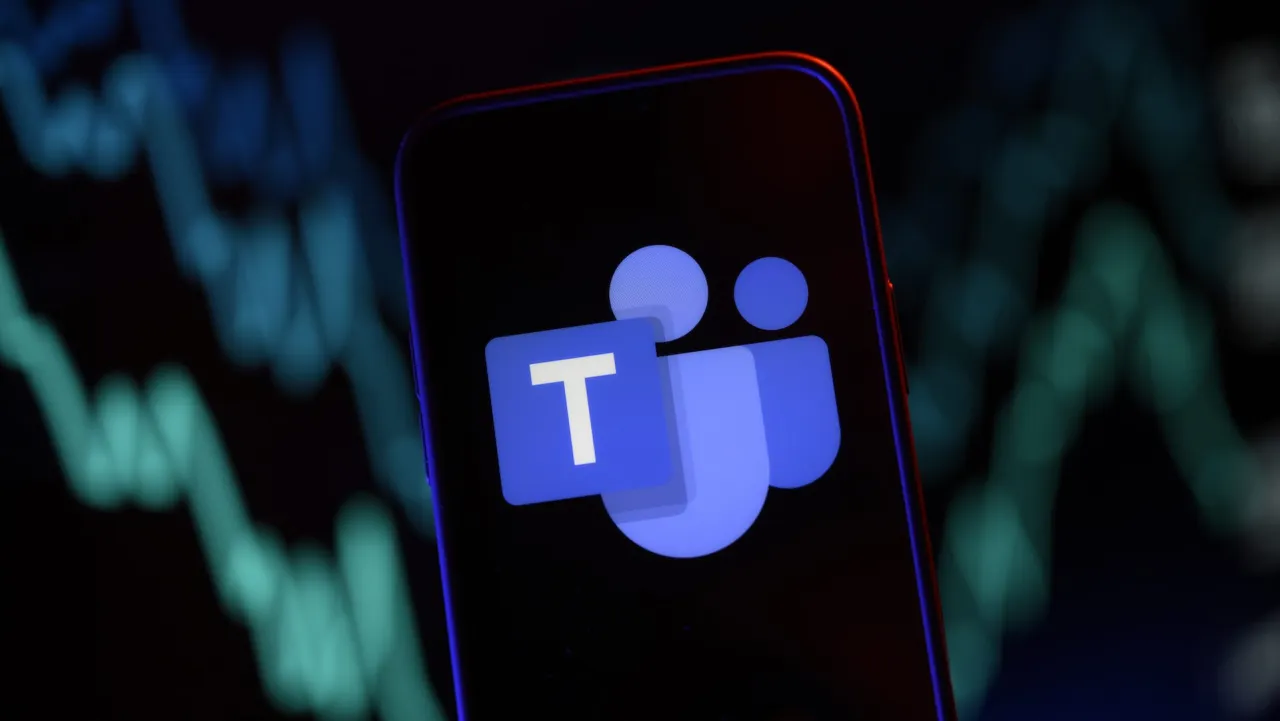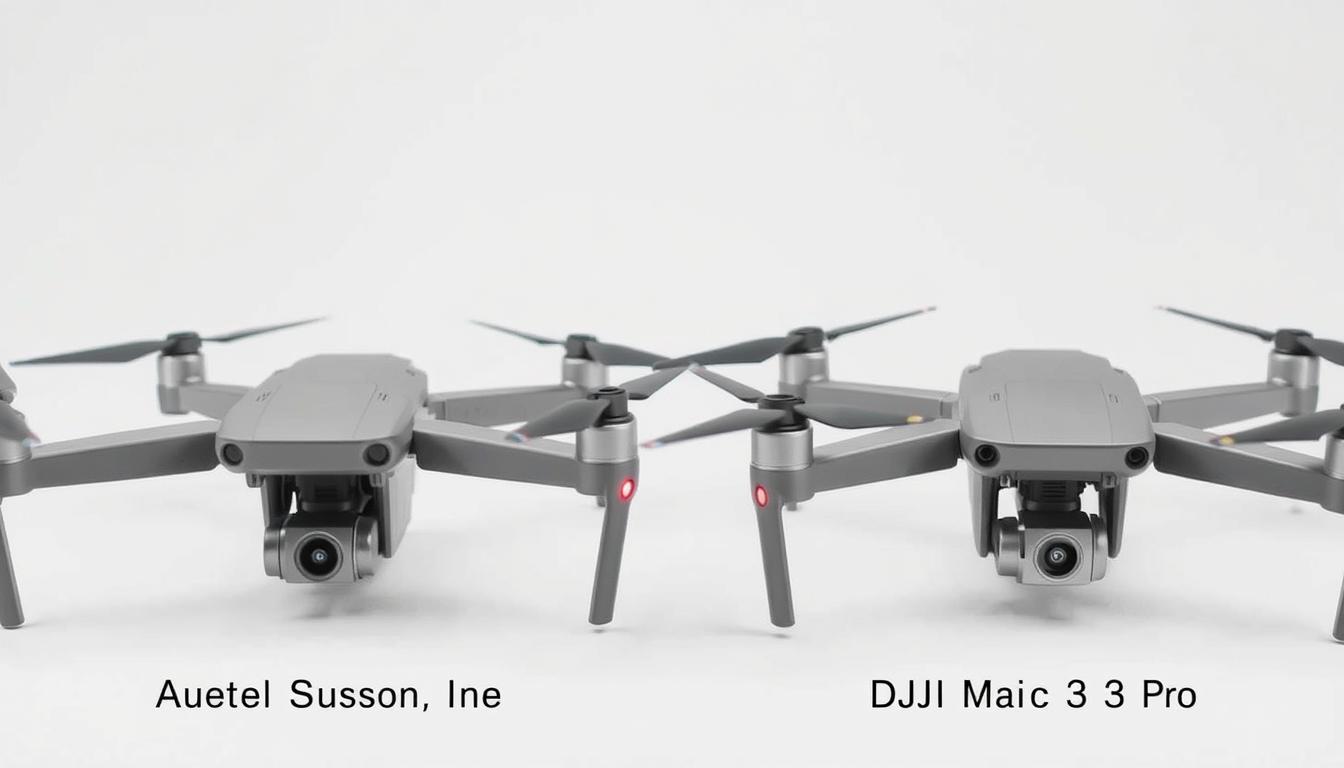Blog
Microsoft to Introduce Voice Cloning for Teams Meetings in 2025

Blog
iPhone 16e Review: Good or Bad? Find Out Here

Did you know the average person spends over 4 hours daily on their smartphone? These devices are a big part of our lives. So, picking the right one is very important. The new iPhone 16e is set at $599. It aims to please those looking for quality without breaking the bank. In this detailed review, we’ll dive into what makes the iPhone 16e a notable entry-level choice. We’ll look at feedback on its performance and the features it offers. Are you considering adding the iPhone 16e to your tech collection, or should you check out other options? Keep reading to find out if the iPhone 16e is a hit or a miss.
Key Takeaways
- The iPhone 16e is priced competitively at $599.
- Features the new A18 chip for improved performance.
- Includes an integrated telephoto lens system for better photography.
- Comparative analysis with devices like Pixel 8a and OnePlus Nord 4.
- Focuses on consumer preferences for a nice screen and smooth performance.
Overview of the iPhone 16e
The iPhone 16e is Apple’s way of entering the budget phone market. It’s light, weighing only 167g, and thin at 7.8mm. It’s perfect for those wanting a good phone that’s easy on the wallet. It runs on iOS 18.3 and features the Apple A18 chip for better speed and performance. There are three storage sizes: 128GB, 256GB, and 512GB, but it doesn’t support extra memory cards.
The review of the iPhone 16e shows it’s light and has a strong processor. However, it doesn’t have unique features. This makes people wonder how it stacks up against other phones in its price range. Looking closely at what the iPhone 16e offers helps figure out if it’s the right choice for you.
Key Features of the iPhone 16e
The iPhone 16e brings cool features to the budget smartphone world. Let’s look at what makes the iPhone 16e special. We’ll cover its design, camera skills, and how fast it is. You’ll get a full view of what the iPhone 16e offers.
Display and Design
The iPhone 16e has a 6.1-inch screen that looks amazing. The resolution is 1170×2532 pixels. It looks great but doesn’t have the fancy materials of more expensive phones. This might matter if you like your gadgets to feel extra luxe.
Camera Overview
The iPhone 16e’s 48MP main camera is powerful. It can record video in ultra HD (2160p). There’s also a telephoto lens that makes photos look better. But, shooting in low light might not be as good. This could change how you feel about taking pictures at night.
Processor and Performance
With the A18 chip, the iPhone 16e is fast and smooth. It’s great for using your favorite apps. Even though it’s speedy, some think it doesn’t always beat other cheap phones. Reading about what users say might help you see if it’s right for you.

iPhone 16e Review: Good or Bad?
People have mixed feelings about the iPhone 16e. Many like its better performance thanks to the A18 chip by Apple. However, some miss features from older models. A big issue is it doesn’t support MagSafe, which many Apple phones do.
User Feedback and Experiences
Out of 739 reviews, the iPhone 16e sees divided opinions. Apple fans enjoy its fast performance. Yet, some question if it’s worth $600, especially compared to Androids. They find Androids like the Pixel 8a more appealing for its camera and design.
Other brands like OnePlus and Nothing also offer great specs for a better price. This makes people wonder if the iPhone 16e can truly compete in the budget market. It’s clear users want more from their phones, like standout features that improve their experience.
Performance Review of the iPhone 16e
The iPhone 16e is making waves in the tech world, thanks to its amazing performance. Let’s look at what makes it stand out among many phones. We will explore its features and how it compares to other smartphones.
Speed and Efficiency with the A18 Chip
The iPhone 16e runs on the A18 chip, which means it’s really fast and efficient. This chip can handle everyday tasks smoothly. Although it’s great, it’s not the top performer in its price range. Still, many users love it, giving it a solid four-star rating in reviews.
Battery Life and Charging Capabilities
The iPhone 16e has a 4005mAh battery, making it perfect for daily use. However, its 7.5W wireless charging is slower than what other phones offer. This might be seen as a downside compared to its peers. According to an iphone 16e performance review, some feel its charging speed doesn’t match its powerful processor.
Here’s a quick summary of the iPhone 16e’s performance:
| Feature | Details |
|---|---|
| Processor | A18 Chip – Excellent speed and efficiency |
| Performance Rating | ★★★★☆ (4 out of 5 stars) |
| Battery Capacity | 4005mAh |
| Charging Speed | 7.5W wireless charging |
| Market Comparison | May lag behind competitors |
This table shows the main points from various iphone 16e ratings comparison studies. It highlights how it stacks up in the competitive smartphone market.
Specifications Breakdown
The review of the iPhone 16e’s specs highlights key storage and design details. These factors are crucial for the user experience. They help you decide if this phone is right for you.
Storage Options and Limitations
The iPhone 16e comes with different storage sizes: 128GB, 256GB, and 512GB. This meets various user needs. However, it lacks a microSD card slot for extra storage. This might be a letdown for users who want more flexibility, especially when other phones have this option.
Physical Dimensions and Weight
The iPhone 16e is light, weighing only 167g, and is 7.8mm thick. It’s easy to carry around all day. Its compact size fits perfectly in pockets or bags. Plus, its design is similar to more expensive iPhones, making it feel like a bargain.
Pros and Cons of the iPhone 16e
The iPhone 16e has its ups and downs, which is interesting to talk about. First off, the good stuff. It runs on the new Apple A18 chip for fast and smooth performance. The camera is better too, with a telephoto lens that makes photos look amazing. These upgrades make this iPhone great for both tech lovers and everyday folks.
But there are downsides to consider. It costs $599, which is more than some other phones, like the OnePlus Nord 4, priced at $450 after discounts. It doesn’t have MagSafe for easy wireless charging. And its wireless charging is slow at 7.5W, especially if the coils aren’t lined up right. People who want quicker charging might not be happy with this.
Looking at the iPhone 16e next to other affordable phones shows some differences. The Pixel 8a has a slick 120Hz OLED screen. The Nothing Phone 3a Pro runs on a strong Qualcomm Snapdragon processor. These specs might make some folks lean towards other options if they’re looking at price and performance.
To wrap things up, the iPhone 16e brings new tech like the A18 chip and a fancy camera. But its high price and missing features may make you think twice. Knowing the pros and cons helps you decide if it’s the right phone for you or if there’s something better out there.
Comparison with Other Budget Smartphones
The iPhone 16e is a solid choice in the budget smartphone world. However, it goes head-to-head with Android phones that offer more for the same price. Let’s see how the iPhone 16e does when compared to these models.
Competitive Analysis with Android Devices
The iPhone 16e and Android phones differ a lot when you look closely. Androids, like the Nothing Phone (3a) Pro, have amazing cameras and more. They offer big main sensors and extra lenses for all kinds of photos. The iPhone 16e only has one camera, which is a bit limiting.
Also, Android phones come with quick charging, but the iPhone 16e doesn’t. For folks who want more tech and flexibility, these points matter a lot.
Alternatives in the Same Price Range
Looking at phones that cost about $499, there are some standout options other than the iPhone 16e. The Google Pixel 8a, for one, has great cameras and long-term software support. It gets updates for seven years, unlike the iPhone 16e.
The Nothing Phone (3a) Pro is another strong choice at $459. It has a smooth screen and a battery that keeps going. Compared to the iPhone 16e, these phones offer more value, proving tough competition in the budget sector.
| Smartphone | Camera Features | Battery Capacity | Price |
|---|---|---|---|
| iPhone 16e | Single camera system | Varies | $499 |
| Google Pixel 8a | Dual camera system, enhanced features | Varying performance with updates | Approx. $499 |
| Nothing Phone (3a) Pro | 50MP main sensor, ultrawide and telephoto | 5,000mAh | $459 |
Pricing Evaluation of the iPhone 16e
The iPhone 16e’s price is a big deal for those thinking about buying it. It costs $599. People have different views on this. Some think it’s worth it for what you get, but others suggest cheaper phones might be better.
Price Point in the Current Market
When deciding on the iPhone 16e, consider more than just its features. Check out how it stacks up against other phones in its price range. Let’s look at some comparisons:
| Smartphone Model | Price | Key Features |
|---|---|---|
| iPhone 16e | $599 | Single-camera system, A18 chip, 5G support |
| Nothing Phone (3a) Pro | $459 | 50MP main camera, 5000 mAh battery, 1080p display |
Looking at the iPhone 16e’s price shows Apple’s premium tag. Yet, phones like the Nothing Phone (3a) Pro offer great features for less. This raises questions about Apple’s position in the market for budget phones.
Latest Updates on the iPhone 16e
The iPhone 16e is a hot topic for those who love technology. Its place in today’s market is much discussed. There haven’t been big changes or updates since it first came out. Apple is careful about when and how they update their devices, and the iPhone 16e is no different.
Even though it hasn’t gotten new features yet, people are guessing about its future. Experts think Apple might adjust the price to respond to what buyers want and the competition. This could make the iPhone 16e easier for more people to buy, making it more popular.
Apple’s move from the Lightning port to USB-C with the iPhone 16e is a big deal. It has made many people excited about potentially faster data transfer and charging. As we talk more about the iPhone 16e, staying up to date is important. This way, we can see how these changes might affect the world of smartphones.
Conclusion
Deciding if the iPhone 16e is a good choice depends on what you like and need. This review points out its strong points, like the A18 chip that makes it fast and efficient. It also has a sturdy build quality that many will find appealing.
Yet, it’s important to see some downsides, too. It misses some features that are common in new smartphones. Also, its higher price might make you think twice. You should compare it with other phones on the market.
Before you decide, think about what matters most to you in a phone. Compare the iPhone 16e’s good and bad points with your needs. This will help you pick a phone that meets your expectations in the changing world of smartphones.
FAQ
What are the key features of the iPhone 16e?
How does the iPhone 16e perform in user reviews?
What is the battery life like on the iPhone 16e?
How does the iPhone 16e compare to its Android competitors?
What are some pros and cons of the iPhone 16e?
What is the price point of the iPhone 16e?
Are there any notable updates or changes to the iPhone 16e since its release?
Blog
DJI Mavic 3 Pro Combo vs. Competitors Review

Did you know that users have reported the DJI Mavic 3 Pro flying over 312 million feet? This impressive stat showcases the DJI Mavic 3 Pro Fly More Combo’s power. It’s a drone made for folks who love taking pictures and videos from the sky. In this review, we’ll see how the Mavic 3 Pro stands up to other drones in the market. We’re looking at rivals like the DJI Air 3 and the Autel Robotics Evo Lite+. We will dig into the Mavic 3 Pro’s top features, such as its cutting-edge camera, strong flight abilities, and cool flying modes. Let’s explore why the Mavic 3 Pro is a top choice in today’s drone market and share advice for people thinking about buying one.
Key Takeaways
- Users report maximum flight distances of up to 312,090,263 ft with the Mavic 3 Pro.
- The Mavic 3 Pro Fly More Combo features advanced camera technology, including a collaboration with Hasselblad.
- Maximum flight time of 43 minutes provides extended aerial photography opportunities.
- Autonomous flying features enhance safety and ease of use for both novices and experts.
- Our drone review will include detailed comparisons with competitors like the DJI Air 3 and Autel Robotics Evo Lite+.
- Price point analysis indicates the Mavic 3 Pro is competitive with other high-end drone packages.
- Understanding user feedback is essential for assessing overall performance satisfaction.
Introduction to DJI Drones
DJI is a top name in drone technology, reshaping aerial photography for both fans and experts. Their Mavic 3 Pro Series breaks new ground in what quadcopters can do. These drones have advanced features like a tri-camera setup for amazing photos from different distances.
The Mavic 3 Pro is known for its superior image quality. It has a medium tele camera with a 70mm focal length and captures images at 48MP, perfect for quality lovers. The 166mm tele camera adds more flexibility, offering 7x optical zoom and up to 28x hybrid zoom, to meet different aerial photography needs. These features make DJI drones powerful for creative shots.
With these drones, capturing stunning shots is easier, drawing more people to drone technology. Now, not just pros but hobbyists too can enjoy flying and taking photos with one device. DJI’s leading position in this field shows it’s the go-to brand for serious drone fans.
Overview of the DJI Mavic 3 Pro
The DJI Mavic 3 Pro leads the DJI Mavic series for both pros and beginners alike. It’s light, weighing 958 grams, and folds up for easy carry. When open, it’s still small enough at 347.5×290.8×107.7 mm to be portable without losing power.
Its camera system is top-notch, thanks to a 4/3 CMOS Hasselblad camera. This setup, with 20 MP, allows for stunning photos. It also features two other cameras for greater photography flexibility, including 100MP lossless panorama shots.
The drone’s flight time reaches a high of 43 minutes, perfect for long sessions. Its reach goes up to 15 kilometers, letting you capture far-off scenes. Plus, its eight sensors keep the flight safe by detecting obstacles everywhere.
It flies quickly and smoothly, with an ascent speed of 8 m/s and a horizontal speed of 21 m/s. These features make the Mavic 3 Pro a dream for those seeking the best in aerial photo and video.
Key Features of the DJI Mavic 3 Pro Fly More Combo
The DJI Mavic 3 Pro Fly More Combo is perfect for both hobbyists and pros. It’s packed with advanced features that make flying it a fantastic experience.
Advanced Camera Capabilities
The Mavic 3 Pro’s camera system is top-notch. It has a triple-camera setup that includes a Hasselblad camera, a medium tele camera, and a tele camera. The Hasselblad camera uses a 4/3 CMOS sensor for recording stunning 5.1K/50fps and 4K/120fps videos, plus it snaps 48MP photos.
The medium tele camera has a 1/1.3-inch sensor, shoots 4K/60fps video, and takes 48MP images. For faraway scenes, the tele camera’s 7x optical and 28x hybrid zoom are game-changers.
Flight Performance and Battery Life
The Mavic 3 Pro impresses with up to 43 minutes of flight time. You get more air time with less charging. It’s built for steady flying, too, thanks to its omnidirectional obstacle sensors. For exploring, its O3+ video technology maintains a solid signal for up to 15 kilometers.
Smart Features and Intelligent Flight Modes
Using this drone is easy and fun, with its smart flight modes. FocusTrack and MasterShots are fantastic for getting professional shots without much effort. The DJI RC controller has dual-spring sticks for precise control, and its bright 5.5-inch screen makes viewing easy in any light.
| Feature | Specification |
|---|---|
| Camera System | Integrated triple-camera: Hasselblad, Medium Tele, Tele |
| Hasselblad Camera | 4/3 CMOS, 5.1K/50fps, 48MP |
| Medium Tele Camera | 1/1.3-inch CMOS, 4K/60fps, 48MP |
| Tele Camera | 1/2-inch CMOS, 4K/60fps, 12MP, 7x optical zoom |
| Flight Time | Up to 43 minutes |
| Transmission Range | 15 km with O3+ technology |
| Obstacle Sensing | Omnidirectional with 8 sensors |
| Intelligent Flight Modes | FocusTrack, MasterShots |
Comparing the DJI Mavic 3 Pro with Competitors
The Mavic 3 Pro comparison against its competitors reveals significant strengths that make it a top choice in the drone market competition. With a remarkable max flight time of 43 minutes and a transmission distance of up to 15 kilometers, it outperforms several rivals in terms of endurance and range. This extended flight capability enables photographers and videographers to achieve more dynamic shots during their aerial photography sessions.
When evaluating camera specifications, the Mavic 3 Pro continues to impress. Equipped with a 1/1.3-inch CMOS sensor and offering up to 48MP/12MP photo capabilities, its imagery quality is on par with or exceeds many alternatives. The drone supports video resolutions up to 4K at 60fps, allowing for high-quality video output. Comparatively, the DJI Air 3S boasts a slightly larger 1-inch sensor with 50MP resolution, while the DJI Mini 4 Pro offers 4K video at a frame rate of 100fps. Each model caters to different needs, yet the Mavic 3 Pro stands out with its ability to capture up to 1 billion colors using its 10-bit D-Log M color mode, which significantly enhances color grading in post-production.
The unique features of the Mavic 3 Pro include superior stability and advanced intelligent flight modes. It provides a competitive edge in the realm of aerial photography. User ratings indicate that 84% of reviewers on Amazon rated it five stars. This reflects its solid performance and reliability in various environments. While cheaper drones may seem attractive due to their lower prices, many users report performance issues. This diminishes their experience, leading to a preference for high-quality models like the Mavic 3 Pro.
| Feature | Mavic 3 Pro | DJI Air 3S | DJI Mini 4 Pro |
|---|---|---|---|
| Max Flight Time | 43 minutes | 45 minutes | 34 minutes |
| Transmission Distance | 15 km | 20 km | 20 km |
| Camera Sensor | 1/1.3-inch CMOS | 1-inch CMOS | 1/1.3-inch CMOS |
| Photo Capabilities | 48MP/12MP | 50MP | 4K at 100fps |
| Video Capabilities | 4K/60fps | 4K up to 120fps | 4K at 100fps |
| User Rating | 84% five-star | 86% five-star | 80% five-star |
In essence, the Mavic 3 Pro not only meets the demands of professionals but also responds effectively to the dynamic needs of enthusiasts in the ever-evolving drone market. Its combination of performance, quality, and reliability clearly sets it apart from numerous other models, making it a crucial contender for anyone serious about aerial photography.
DJI Mavic 3 Pro Fly More Combo (DJI RC) vs. DJI Air 3
When we look at the DJI Mavic 3 Pro and the DJI Air 3, things like camera quality and how steady it can fly are important. These factors really shape how you’ll enjoy flying and the kind of photos or videos you’ll get. Let’s dive into the differences between these two models.
Camera Quality Comparison
The cameras on the Mavic 3 Pro and the DJI Air 3 are quite different. The Mavic 3 Pro has a cutting-edge setup, including a 4/3 CMOS Hasselblad camera. It also comes with two extra tele cameras that can record 4K/60fps video. Its upgraded 166mm tele camera can zoom in 7x optically and up to 28x with a hybrid zoom. This makes the *camera quality* top-notch for professional needs.
On the other hand, the DJI Air 3 has a good camera too. Yet, it doesn’t offer as much versatility or depth as the Mavic 3 Pro. Many users prefer the Mavic 3 Pro for its better images. A voting showed 56% liked it more than the Air 3, which got 44%.
Flight Stability and Range
The discussion about the Mavic 3 Pro vs Air 3 also looks at how stable they fly. The Mavic 3 Pro can fly up to about 5,071 miles under the best conditions. This is much more than the Air 3’s range of about 1,227 miles. Users really like how well the Mavic 3 Pro flies, even in different weather.
An important thing connecting flight stability to a good user experience is the smart tech in the Mavic 3 Pro. It has advanced sensors and intelligent flight modes. These make the drone’s flight very stable and reliable, more so than the DJI Air 3. As people want more reliable drones, these features help the Mavic 3 Pro stand out in the drone world.
DJI Mavic 3 Pro Combo vs. Autel Robotics Evo Lite+
When looking at the DJI Mavic 3 Pro Combo and the Autel Robotics Evo Lite+, we see a fascinating drone battle. This comparison shines when examining their image quality and autonomous drone features. Each drone brings something special to the table, meeting various user needs.
Image and Video Quality
The DJI Mavic 3 Pro has an amazing camera. It includes a 20MP wide-angle lens and shoots 5.1K videos at 50 fps. It also has a telephoto lens for varied shooting needs, like 7x optical zoom, and great low-light shots thanks to better aperture settings.
On the other side, the Autel Robotics Evo Lite+ captures up to 6K video at 30 fps and takes 20MP photos. Though its images are striking, they don’t quite match the Mavic 3 Pro’s variety and video steadiness.
Autonomous Features and Safety
Drones that fly themselves are really handy. The DJI Mavic 3 Pro has top-notch obstacle avoidance and smart flying modes, making it safer and easier to use. It can stay in the air for up to 43 minutes, perfect for getting those high-up shots.
The Autel Robotics Evo Lite+, with a flight time close to 40 minutes, lacks some of the DJI model’s sophisticated safety features. This makes the Mavic 3 Pro the safer choice.

| Feature | DJI Mavic 3 Pro | Autel Robotics Evo Lite+ |
|---|---|---|
| Flight Time | Up to 43 minutes | Up to 40 minutes |
| Camera Resolution | 20MP, 5.1K video | 20MP, 6K video |
| Optical Zoom | 7x | N/A |
| Transmission Range | Up to 9.3 miles | Up to 7.4 miles |
| Obstacle Avoidance | Available | Limited |
Best Alternatives to DJI Mavic 3 Pro
If the DJI Mavic 3 Pro doesn’t meet your needs, there are great alternatives. These options come with excellent features. They are perfect for different photography and videography needs.
The DJI Air 3 is a top pick for photography lovers. It has a 1/1.3-inch sensor that records amazing 4K video at up to 100 frames per second. You can fly it for up to 46 minutes, thanks to its long battery life. It also has a 360-degree obstacle avoidance system for safe flying. This makes it a smart pick for both new and experienced flyers.
The Autel Robotics Evo Lite+ is another great choice. It’s known for high-quality images and 6K video, making it a favorite among professionals. With its advanced autonomous flight system, it offers smooth and safe flying.
| Drone Model | Camera Capability | Battery Life | Weight | Price |
|---|---|---|---|---|
| DJI Air 3 | 4K @ 100fps, 20 MP | 46 minutes | 1.5 lb | $1,078.95 |
| Autel Robotics Evo Lite+ | 6K | Approx. 40 minutes | 2.5 lb | $1,299.00 |
| DJI Mini 4 Pro | 4K | 34-45 minutes | 0.55 lb | $1,243.63 |
| DJI Mini 3 | 4K | 38-51 minutes | 0.55 lb | $419.00 |
For budget watchers, the DJI Mini 3 and DJI Flip are smart picks. The Mini 3 offers up to 51 minutes of flight time. The Flip is great for beginners, with easy-to-use controls and good photo quality.
Each option has its own benefits, so it’s key to think about what you need. As the drone world grows, one of these might be just right for you.
Budget Options: DJI Mini 3 vs. Mavic 3 Pro
Comparing the DJI Mini 3 and the Mavic 3 Pro is crucial for budget-conscious shoppers. The DJI Mini 3 is great for those looking to save money. Meanwhile, the Mavic 3 Pro is for photographers and videographers who need more advanced features.
Cost vs. Performance Analysis
The DJI Mini 3 is light, at just 249g, and boasts a 48MP camera. It can fly for up to 38 minutes and shoot 4K HDR video. For $719, especially in the Fly More Combo, it’s a great deal for beginners.
On the other hand, the Mavic 3 Pro is heavier at 958g. It features a 20MP Hasselblad camera plus options for 48MP and 12MP. Shooting 5.1K video at 50 frames per second, it flies for 43 minutes. Priced at $1,599 for the Fly More Combo, it’s for serious filmmakers.
| Drone Model | Weight | Camera Resolution | Flight Time | Price |
|---|---|---|---|---|
| DJI Mini 3 | 249g | 48MP | Up to 38 mins | $719 |
| DJI Mavic 3 Pro | 958g | Up to 48MP | Up to 43 mins | $1,599 |
Your choice between the DJI Mini 3 and the Mavic 3 Pro depends on your needs and wallet. The Mini 3 is excellent for those looking for a good deal and solid performance. But if you need the best photos and videos, the Mavic 3 Pro’s features are worth the cost.
Performance Analysis Based on User Reviews
Many users are happy with the drone performance of the DJI Mavic 3 Pro. They like its advanced camera features. It can shoot videos in up to 5.1K at 50 frames per second. This improves the quality of their content.
The drone also takes 20-megapixel stills and 48MP images from a new camera. This shows a commitment to photography excellence. It is appreciated by those who love taking photos.
Users also talk about the battery life. The drone flies for 30 to 43 minutes on a single charge. It can also hover for around 37 minutes. This makes it great for long photo shoots.
It can fly up to 28 km away and transmit data from up to 15 km. This allows for smooth use in different places.
Users like the drone’s speed and agility. It can go up to 21 m/s at sea level. The updated Active Track feature makes following moving things easy. This improves the experience when shooting action.
It has eight sensors all around it to avoid obstacles. Many users feel safe flying it even in tricky places.
There’s talk about the editing options too. The LightCut app lets users automatically make videos at 4K/60fps. This shows the drone is user-friendly and simplifies editing. It’s a top choice for those creating content.
Overall, user reviews are very positive. They show the DJI Mavic 3 Pro as a strong option in the market.
Understanding DJI Drone Accessories
Equip your DJI Mavic 3 Pro with the right accessories to boost your flying experience. DJI Mavic 3 accessories add functionality and improve performance. They range from essential safety tools to efficiency upgrades, helping elevate your aerial capabilities.
Recommended Accessories for Mavic 3 Pro
- Extra Batteries: Extending flight sessions is crucial; multiple batteries provide more time in the air.
- Propeller Guards: These protect your drone during risky maneuvers or when flying in confined spaces.
- Carrying Cases: A dedicated case ensures easy transport and protection from the elements.
- ND Filters: These manage light exposure, improving image quality during bright conditions.
- Battery Charging Hub: Conveniently charges multiple batteries, allowing for quick readiness.
Impact of Accessories on Performance
Choosing the right DJI Mavic 3 accessories can greatly impact performance. More flight time from extra batteries means more chances to capture stunning scenes. Propeller guards ensure safer flights and lower the risk of crashes. ND filters are key for optimal image quality, resulting in cleaner, more professional content. Investing in good drone accessories lets you fly confidently in various scenarios.
| Accessory | Function | Performance Impact |
|---|---|---|
| Extra Batteries | Increase flight time | Longer sessions enhance footage capture |
| Propeller Guards | Protect drone during flight | Decrease risk of damage |
| Carrying Cases | Safeguard transport | Prevents wear and tear |
| ND Filters | Control light exposure | Improves image quality in bright conditions |
| Battery Charging Hub | Charge multiple batteries | Quicker turnaround for flights |
DJI Mavic 3 Pro Market Position
The DJI Mavic 3 Pro shines in the aerial photo and video market. It stands out through its advanced features compared to rivals.
It boasts a tri-camera system, including a 4/3 CMOS Hasselblad camera. It also has two telephoto options for great zoom. This gives it a professional edge.
Users look for drones that perform well and are versatile. The Mavic 3 Pro has this, with a 1TB SSD in its Cine version for lots of storage. It also has an improved DJI RC Pro remote for better control.
Comparing it to other models shows its strengths. Great battery life and features make it a top choice. It meets the needs of both amateurs and pros.
| Feature | Mavic 3 Pro | Competitor A | Competitor B |
|---|---|---|---|
| Camera System | Tri-camera (Hasselblad, 70mm, 166mm) | Dual-camera | Single-camera |
| Video Quality | 4K/60fps | 4K/30fps | 4K/30fps |
| Battery Life | Up to 46 minutes | Up to 30 minutes | Up to 35 minutes |
| Transmission Range | 15 km | 10 km | 12 km |
| Storage | 1TB SSD (Cine Version) | MicroSD Support | Limited Internal Storage |
The Mavic 3 Pro’s cutting-edge tech and easy-to-use features keep it ahead in the drone game.
Expert Opinions and Industry Insights
The DJI Mavic 3 Pro is loved by drone lovers and pros alike. Experts rave about its top-notch camera and solid flying skills. People in the industry say the drone’s versatility is perfect for everything, from making movies to mapping.
Reviews from pros spotlight its superior optical quality and better performance in low light. Its telephoto feature stands out. These points make it a top choice in the market today.
Professional Recommendations
Many pros have recommended the DJI Mavic 3 Pro. They say it’s great for videographers who want crisp, high-quality footage. It can shoot in 5.1K and has ProRes color depth support. Its front and back cameras let users try out different shooting angles.
Experts also suggest getting to know its new tracking features. They’ve been upgraded to capture moving subjects better.
User Testimonials
Users share their great experiences with the DJI Mavic 3 Pro. They love the 43 minutes of flight time, which means less charging. The 20-megapixel still photos and the 7X zoom of the telephoto lens are impressive.
Yet, some mention struggles with the sharpening settings in the camera. This has made a few photographers question image quality. But, most people say its advanced features and flying power make it a smart buy for work or play.
DJI Mavic 3 Pro Pricing and Availability
The DJI Mavic 3 Pro Fly More Combo is well-known for its great features and performance. Its price shows its value in the high-end drone market. Knowing where to buy drones is key to make a smart choice.
Where to Buy
You can find the DJI Mavic 3 Pro in many places. Some options are:
- Official DJI website
- Authorized retailers such as Best Buy and B&H Photo
- Online marketplaces like Amazon
- Local drone specialty shops
Prices for the Mavic 3 Pro might vary based on special deals and stock.
Price Comparisons with Competitors
Mavic 3 Pro pricing is different from rivals like the Autel Robotics Evo Lite+ and the DJI Air 3. Let’s see how the Mavic 3 Pro compares:
| Drone Model | Price | Key Features |
|---|---|---|
| DJI Mavic 3 Pro | $2,199 | 4/3 CMOS Hasselblad camera, 43 min flight time, 15 km transmission. |
| Autel Robotics Evo Lite+ | $1,499 | 1-inch CMOS sensor, 40 min flight time, 12 km transmission. |
| DJI Air 3 | $1,099 | Dual camera system, 46 min flight time, 12 km transmission. |
The Mavic 3 Pro is competitive, offering top-quality features that show its worth. Knowing these facts helps you choose wisely.
Conclusion
The DJI Mavic 3 Pro stands out in the drone market. It has a triple-camera system for top-notch photos and 5.1K videos. Plus, it can fly up to 43 minutes and reach 15 km away.
Thinking about what you need and your budget is key. The Mavic 3 Pro shines with its camera and smart flying features. It’s great if you want a versatile, high-quality drone.
If you’re getting into drones or want a better one, the Mavic 3 Pro is a smart pick. Remember to check our YouTube channel for more on drones. Ready for sky adventures? The DJI Mavic 3 Pro might be the partner you need.
FAQ
What is included in the DJI Mavic 3 Pro Fly More Combo?
How does the camera quality of the Mavic 3 Pro compare to other drones?
What is the maximum flight time of the DJI Mavic 3 Pro?
Can the Mavic 3 Pro be used by beginners?
How does the DJI Mavic 3 Pro perform in different weather conditions?
What are some essential accessories for the DJI Mavic 3 Pro?
Where can I buy the DJI Mavic 3 Pro Fly More Combo?
How does the Mavic 3 Pro compare to the DJI Air 3 in terms of camera capabilities?
What feedback do users generally provide about the Mavic 3 Pro’s performance?
Is the DJI Mavic 3 Pro worth the investment for casual users?
Blog
Top PS5 Headsets of 2025: Ranked & Reviewed

Did you know that the Audeze Maxwell gaming headset can last an astonishing 80 hours on a single charge? This is way longer than the PlayStation Pulse 3D, which only gives you 12 hours. As audio accessories get better, the right headset can really upgrade your PS5 games.
In 2025, the choices range from budget-friendly to high-end models. This means every gamer can find something they like.
In this article, we’re diving into the top PS5 headsets of 2025. We’ve done thorough testing and considered what users say. Our goal is to direct you to the best PS5 headset in 2025. We’re looking at sound quality, how comfortable they are, and what special features they have. Whether you want the newest tech or the longest battery life, we’ll help you pick a great headset.
Key Takeaways
- Audeze Maxwell offers over 80 hours of battery life, appealing to long-term gamers.
- The SteelSeries Arctis Nova Pro features versatile connectivity options, enhancing compatibility.
- PlayStation Pulse Elite provides a premium experience with planar magnetic drivers.
- Logitech G PRO X 2 LIGHTSPEED Wireless boasts a low-latency connection for competitive play.
- Comfort is crucial; lightweight options like Turtle Beach Stealth 600 are notable for extended use.
Introduction to PS5 Gaming Headsets
The PS5 gaming headset introduction lets you dive into the amazing sounds of your top games. A great headset makes the sounds clearer and your gaming better, especially when talking to friends online. The best gaming headsets for PS5 2025 let you catch every step, word, and sound detail.
Today’s PS5 headsets use the latest tech for better sounds and 3D audio. Knowing what’s out there helps you find the perfect match for how you play. They come in wireless or wired forms, giving you freedom or a steady connection to your game station.
As game sound tech keeps getting better, it’s smart to keep up with the best gaming headsets for PS5 2025. The top ones have noise blocking, sound adjustment, and clear mics. They make every game more immersive, whether you care most about hearing every detail, wearing them comfortably, or needing to game without wires.
The Necessity of a Good Gaming Headset
A top-notch gaming headset boosts your gaming fun a lot. These headsets do more than just make sounds clearer; they help you get really into the game and improve how well you play. You especially need a great PS5 headset to tell where sounds, like footsteps or gunshots, are coming from. This skill is key in competitive games where every moment is important.
Great PS5 headsets come with special features. They have built-in microphones for clear talks with your team, which is key for planning strategies. They also block out extra noise, letting you dive deeper into your game. For example, the SteelSeries Arctis Nova 5 can be used for up to 60 hours straight, perfect for those who game a lot.
Cost matters when picking out a gaming headset. The SteelSeries Arctis Nova 1X costs about $57.82 but has 40mm drivers that compete with pricier models. This shows you don’t need to spend a lot for an amazing gaming setup. A good headset doesn’t just change how you hear the game; it boosts your play too.
Best PS5 Headset in 2025 Reviewed and Rated
Finding the right PS5 headphones for 2025 isn’t easy. You have to look at sound quality, how comfy they are, battery life, and other features. This helps every gamer get a headset that’s just right for their play style. Rating PS5 headsets in 2025 means looking at these things closely to make the best choice.
Overview of the Selection Criteria
Choosing the top gaming headphones for the PS5 in 2025 comes down to a few key points:
- Sound Quality: It’s super important for getting pulled into the game, helping you catch every tiny sound.
- Comfort: Since gaming sessions can last a long time, it matters how the earcups feel and their padding.
- Battery Life: For wireless types, having a battery that lasts longer makes gaming way better.
- Features: Things like customizable EQ settings and noise blocking make a big difference in sound quality and being aware of your gaming environment.
Factors Influencing Sound Quality
Different things affect how good the sound is in PS5 headsets:
- Driver Technology: Bigger drivers, like those in the Razer Kaira X, typically give better bass.
- Frequency Response: Having a broad frequency range means the audio sounds more detailed.
- Noise Isolation: Good noise cancelling tech makes the game more immersive by cutting out background noise.
Because of these factors, comparing PS5 headsets in 2025 helps find the best one for different gamers. No matter if you care more about how rich the sound is or if it’s comfortable, knowing what to look for helps you choose better.

Top Premium PS5 Headsets of 2025
Choosing a top-notch headset can really step up your gaming. In 2025, the market offers amazing options that shine in both performance and cool features. Here are two PS5 headsets that you should really look into.
Audeze Maxwell: The High-End Choice
The Audeze Maxwell leads in high-end sound with planar magnetic drivers for top sound quality. It lasts up to 78 hours on a single charge, perfect for long play times. And with a quick 20-minute charge, you get 20 to 30 hours of gameplay.
This makes it a standout wireless option for PS5 in 2025. If you’re searching for a mix of comfort and amazing sound, the Audeze Maxwell should be your go-to.
SteelSeries Arctis Nova Pro: Versatility and Quality
The SteelSeries Arctis Nova Pro wows with its connectivity options and clear sound. It comes with a hybrid noise cancellation feature that pulls you deeper into the game. It’s also great for those who play on different devices thanks to its flexibility.
It’s known for its stylish design and superb sound, ranking it high among PS5 headsets for 2025. People love its easy-to-use controls and sleek look, adding to a great gaming vibe.
Best Mid-Range PS5 Headsets of 2025
Looking for the best PS5 headsets in 2025 that won’t break the bank? There are options that offer top-notch performance without costing too much. Here, we highlight two highly praised PS5 headsets for 2025. They stand out for their quality, comfort, and special features.
Logitech G PRO X 2 LIGHTSPEED Wireless
The Logitech G PRO X 2 LIGHTSPEED Wireless is a standout in the mid-range category. It offers fast wireless connectivity and an impressive battery life. This headset, striking a balance between cost and performance, is a hit among gamers. It features an adjustable microphone and custom sound profiles. These make your PS5 gaming moments even more immersive.
SteelSeries Arctis Nova 7P: A Strong Contender
The SteelSeries Arctis Nova 7P is another top pick for mid-range PS5 headsets in 2025. It is celebrated for its unparalleled comfort, letting you game for hours on end. You can adjust the sound to fit your game type, enhancing your gaming sessions. Its excellent sound quality and noise-canceling make it a standout PS5 headset choice for 2025.
Top Budget-Friendly PS5 Headsets
Finding a good PS5 headset doesn’t mean you have to spend a lot. In 2025, there are budget-friendly PS5 headsets that provide great sound and comfort. Two models, in particular, are great for their price. They have good sound, long battery life, and are easy to use.
Turtle Beach Stealth 600 (Gen 3)
The Turtle Beach Stealth 600 (Gen 3) is one of the best value headsets for PS5. It costs around $100. It combines low cost with advanced technology. This makes it perfect for gamers who don’t want to spend too much. Key features include:
- Drivers: 40mm
- Battery Life: 50 hours
- 3D Audio Support: Yes, enhances immersion
- Quick Charge Feature: Available, making charging easy during sessions
Logitech G435 LIGHTSPEED Wireless
The Logitech G435 LIGHTSPEED Wireless is another excellent choice. It’s around $80. This headset is light and comfortable. It delivers great sound without letting down on features. Its features include:
- Drivers: 40mm
- Battery Life: 18 hours
- 3D Audio Support: Yes, works with PS5
- Wireless Connectivity: Easy to set up
| Headset Model | Price | Drivers | Battery Life | 3D Audio Support |
|---|---|---|---|---|
| Turtle Beach Stealth 600 (Gen 3) | $100 | 40mm | 50 hours | Yes |
| Logitech G435 LIGHTSPEED Wireless | $80 | 40mm | 18 hours | Yes |
These two budget PS5 headsets for 2025 allow gamers to get great sound and features at a low cost. Finding the right headset is now easy with these affordable options. They offer good quality without hurting your wallet.
Wired vs. Wireless: Which is Better for PS5?
When picking a PS5 headset, knowing the pros and cons of wired and wireless can make a big difference. Wired headsets, like the SteelSeries Arctis 1, offer better sound quality and a steady connection. They have lower latency, perfect for gamers who need to react fast. Plus, with a simple setup and no battery worries, they’re convenient.
Wireless headsets, however, let you move freely. Take the Sony Pulse 3D Wireless headset. It works well with the PS5’s 3D Audio and has no annoying cables. Yet, you might have to charge it after 12 hours. The Sony Inzone H5 beats that with a 28-hour battery, meaning less downtime.
Choosing the right headset involves thinking about portability, comfort, and your gaming habits. High-end options offer advanced features and longer battery life. But affordable models can still meet your needs. Prices range from $30 for basic wired headsets to over $400 for top-tier wireless ones. Think about what matches your gaming style and wallet.
Importance of Comfort in Gaming Headsets
Choosing a gaming headset? Comfort is key, especially for long play times. PS5 headset comfort factors like ear padding, headband fit, and weight matter a lot. They help make gaming enjoyable without making you tired.
Factors That Affect Comfort
Several things impact how comfy your headset is:
- Ear Padding: Soft, adjustable cushions prevent ear aches during long sessions.
- Headband Fit: A good headband spreads out the weight, easing pressure on your head.
- Weight: A lighter headset reduces neck strain, making it easier to wear for longer.
- Material Quality: Breathable materials cool your ears off, preventing overheating while you play.
Recommendations for Comfortable Options
Want to game for hours without discomfort? Check out these comfy headsets:
- Sony Inzone H3: Known for its superior comfort. It’s a top pick for marathon gaming.
- SteelSeries Arctis Nova Pro Wireless: At 337g, it’s light, has great cushions, and a battery life of 44 hours for fewer breaks.
- HyperX Cloud Alpha: Costs about $80. It’s comfy for long gaming periods, a top choice for serious players.
- Turtle Beach Stealth 600 Gen 2 Wireless: Comfortable and user-friendly, making it perfect for game lovers.
Advanced Features to Look For
Choosing a gaming headset for your PS5 comes down to the PS5 headset advanced features. These features improve your gaming whether you play just for fun or want the best tech. Think about these important aspects:
- Customizable Sound Profiles: Many headsets let you change EQ settings. This means you can adjust the sound how you like.
- Virtual Surround Sound: This feature works with all setups. It pulls you into the game, making everything seem more real.
- Built-in Voice Chat Capabilities: Having a mic with noise-cancellation makes team talks clear during multiplayer games.
- Hot-Swap Battery: Found in models like the SteelSeries Arctis Nova Pro Wireless, this lets you change batteries without stopping your game.
- 3D Audio Support: Headsets like the Sony Pulse 3D Wireless use spatial audio. This gives a fully immersive sound experience.
The table below shows key details of popular PS5 headsets. It highlights the best features in gaming headsets to consider:
| Headset | Battery Life | 3D Audio | Price | Advanced Feature |
|---|---|---|---|---|
| Audeze Maxwell | 80 hours | Yes | Varies | Customizable EQ, Hot-Swap Battery |
| Sony Pulse 3D Wireless | 12 hours | Yes | $99 | Built-in Voice Chat |
| SteelSeries Arctis Nova Pro Wireless | Variable | Yes | Varies | Hot-Swap Battery, Customizable EQ |
| Epos H6 Pro | 30 hours | No | Varies | Open-Back Design |
| Sony INZONE H9 | 28 hours | Yes | Varies | Sound quality upgrade |
| Astro A50 | 15 hours | Yes | Varies | Wireless Charging Dock |
PS5 Headset Comparison 2025
In the world of PS5 gaming headsets, a detailed comparison for 2025 highlights key differences. It makes choosing easier by pointing out what matters in best PS5 headset features, costs, and how they feel to use.
We looked at 11 top gaming headsets for every budget. The SteelSeries Arctis Nova Pro Wireless tops the list. It’s praised for its noise blocking and connecting to more than one device at once. It has a base with two USB ports, making it easier to connect other devices.
| Headset Model | Type | Battery Life | Weight | Price (Approx.) |
|---|---|---|---|---|
| SteelSeries Arctis Nova Pro Wireless | Wireless | up to 30 hours | 320 grams | More than $400 |
| Razer Blackshark V2 Pro | Wireless | up to 70 hours | 320 grams | About $180 |
| HyperX Cloud Alpha Wireless | Wireless | up to 300 hours | 300 grams | About $200 |
| Corsair HS80 Max | Wireless | up to 65 hours (wireless) | 400 grams | About $250 |
| Turtle Beach Stealth 600 Gen 2 | Wireless | up to 15 hours | 240 grams | Approximately $80 |
| Epos H3 Hybrid | Wired/Wireless | N/A | 300 grams | About $150 |
The Razer Blackshark V2X offers a light, wired choice, only 240 grams. It shows how important it is to have a headset that’s easy to carry. The Corsair HS80 Max is also notable. It provides long battery life and great sound blocking, key for getting lost in the game.
When picking a headset, look at the specs and also the cost. Wired models begin at about $30, while top-tier wireless ones can go over $400. Knowing the best PS5 headset features helps you choose wisely based on how you play and what you can spend.
Latest PS5 Headset Reviews
Looking at the newest PS5 headset reviews can really help improve your gaming. By 2025, there are a few headsets that really stand out. They shine thanks to what players say and experts think.
The SteelSeries Arctis Nova 5 Wireless is much loved for its top-notch audio and comfy wear. It’s a top pick for many gamers. This headset blends amazing sound with comfort, perfect for long play times.
The Turtle Beach Stealth Pro is known for its impressive 50mm audio drivers and works with Dolby Atmos. This means it offers great sound, pulling you deep into your games.
SteelSeries Arctis Pro Wireless provides excellent sound without loss and a dual battery feature. Gamers love this headset for its long-lasting use and superior sound.
In multiplayer games, the EPOS H3 stands out with its clear sound. This clarity helps players communicate better in competitive games, giving them an advantage.
Looking for something easier on the wallet? The Logitech G435 Lightspeed Wireless is a great pick. Its wireless feature and light design make it very comfy for long play.
The Sony PS5 Pulse 3D Wireless Headset impresses with its 3D audio feature. Players love the immersive sound it provides during games.
The Razer BlackShark V2 Pro is praised for its THX Spatial Audio. This makes it stand out in delivering deep and precise sounds, perfect for atmospheric games.
If crystal-clear voice is key for you, the Audio-Technica ATH-M50x STS StreamSet with its professional mic is ideal. It boosts clarity in game chats.
When considering a headset, think about battery life. Most wireless models last 10 to 12 hours. But, the Audeze Maxwell leads with an 80-hour battery life and quick charging.
Comfort matters too. Look for headsets that are light and can be adjusted. This, along with personalized settings from dedicated apps, can enhance your gaming based on what you like.
As you look through your choices, remember different models have unique features. Things like how they connect and noise cancellation can change how you experience sound and gameplay. These advances show how wireless tech is making gaming even better.
PS5 Headset Buying Guide 2025
Looking for a PS5 gaming headset? It’s important to focus on some key aspects. This guide helps you consider the right features, budget, and brand reliability for your needs. Making a smart choice can boost your gaming to a whole new level with crystal-clear sound.
What to Consider Before Buying
Think about these things before getting a PS5 headset:
- Budget: Prices go from $30 for basic types to $400+ for high-end models.
- Intended Use: Figure out if it’s for fun, serious gaming, or total immersion.
- Compatibility: The headset should work well with your PS5 and any other systems you have.
- Comfort: Look for headsets that feel good to wear for long periods.
- Sound Quality: Choose those with great EQ settings and sound modes for the best audio.
Top Rated PS5 Headset Brands in 2025
Many brands stand out for making top-quality gaming headsets. Let’s look at some of the best for PS5:
| Brand | Best Product | Type | Price Range | Key Features |
|---|---|---|---|---|
| SteelSeries | Arctis Nova Pro Wireless | Wireless | $350+ | Active Noise Cancellation, hot-swappable battery |
| Razer | Blackshark V2X | Wired | $80 | Stereo and 7.1 sound, lightweight (240g) |
| Corsair | HS80 Max | Wireless | $150+ | Enhanced sound isolation, Bluetooth battery life of 130 hours |
| Epos | H3 Hybrid | Wired/Wireless | $150 | Excellent mic quality, good for various platforms |
| HyperX | Cloud Alpha Wireless | Wireless | $80 | Up to 300 hours battery life |
Choosing a top brand for your PS5 headset can really change how you game. Consider these key points to pick one that matches your gaming lifestyle and needs.
Conclusion
To wrap it up, good sound quality is key for a great gaming session. Look at the Audeze Maxwell, for example. It has 80 hours of battery life and amazing sound. Then there’s the Sony Pulse 3D Wireless Headset. It lets you tweak the sound just how you like it. There’s a perfect PS5 headset out there for everyone. Whether you care most about how comfy they are, how long they last, or how you can change the sound.
Looking at the top PS5 headsets, it’s clear technology has come a long way this year. The SteelSeries Arctis Nova Pro Wireless is a hit thanks to its cool hot-swap battery and sound options. For those watching their spending, the Turtle Beach Stealth 600 is a solid pick. It’s reliable and doesn’t cost too much.
Picking the right headset doesn’t just make games more fun. It can also up your game in competitive play. With over 820 headsets tested, the choices we’ve talked about here are meant to help you choose wisely. Happy gaming on your PlayStation 5. The right headset really can change the game for you.
FAQ
What are the best PS5 headsets in 2025?
Why is a good gaming headset essential for PS5?
What should I look for in PS5 headsets?
Are there budget-friendly options for PS5 headsets?
What’s the difference between wired and wireless headsets for PS5?
How important is comfort in a gaming headset?
What advanced features should I consider in a PS5 headset?
Where can I find the latest reviews for PS5 headsets?
What brands are known for producing quality PS5 headsets?
-

 Blog3 years ago
Blog3 years agoExpress yourself
-

 Blog1 year ago
Blog1 year agoTop PS5 Headsets of 2025: Ranked & Reviewed
-

 Featured10 months ago
Featured10 months ago22 New Gadgets And Inventions (2025) You’ll Crave
-

 Blog1 year ago
Blog1 year agoTop Noise-Cancelling Headphones 2025: Reviewed & Rated
-

 Blog1 year ago
Blog1 year agoNintendo Switch 2 Review: Next-Level Gaming Await
-

 Blog1 year ago
Blog1 year agoFLYBIRD Vibration Plate Review: Boost Your Fitness
-

 Blog12 months ago
Blog12 months agoDJI Mavic 3 Pro Combo vs. Competitors Review
-

 Blog11 months ago
Blog11 months agoiPhone 16e Review: Good or Bad? Find Out Here
